#poets saints revolutionaries
Text
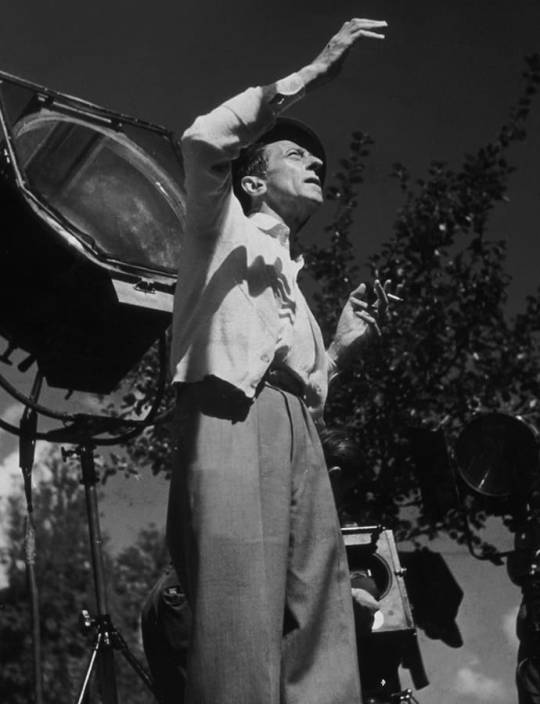


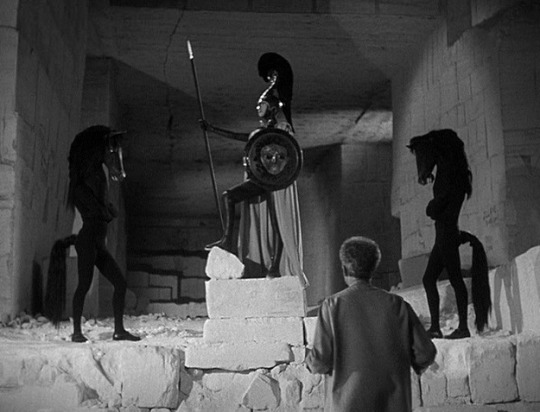
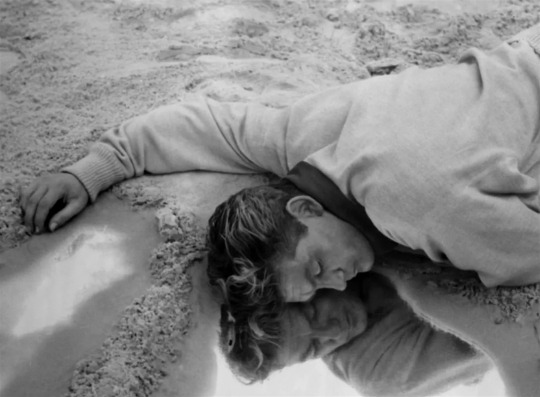
Happy Birthday Jean Cocteau.
Anyone who has experienced the poetic wonder of Cocteau's motion pictures understands why today should be noted.
His insanely complex preoccupations and aesthetic contradictions were a treasure chest from which he selected assorted gems—or sometimes just the odd bauble. His name, his works, and his very visage (he was obsessed with being photographed) are inextricably linked to almost every art movement of the 20th century, and the self-promoting, ever-evolving artist was never shy about exploiting his experience and ubiquity.
As a writer of films and plays, librettist, painter, sculptor, set and costume designer, film director, actor, essayist, social butterfly, and dandy, Cocteau stubbornly acknowledged only one title throughout his career: poet.
More significantly, he professed only one cinematic goal: that we might, in his words, "all dream the same dream together."
It’s all up there on the screen.
4 notes
·
View notes
Text

For America is a lady rocking on a porch in an unpainted house on an unused road but Anne does not see it.
For America is a librarian in Wichita coughing dust and sharing sourballs with the postman.
For America is Dr. Abraham passing out penicillin and sugar pills to the town of Woolrich, Pennsylvania.
For America is a reformed burglar turned locksmith who pulls up the shades of his shop at nine a.m. daily (except Sunday when he leaves his phone number on the shop door).
For America is the headlight man at the Ford plant in Detroit, Michigan, he of the wires, he of the white globe, all day, all day, all year, all his year's headlights, seventy a day, improved by automation, but Anne does not.
For America is a miner in Ohio, slipping into the dark hole and bringing forth cat's eyes each night.
For America is only this room . . . there is no useful activity.
For America only your dolls are cheerful.
From "O Ye Tongues" Anne Sexton
6 notes
·
View notes
Text
youtube
Watch the American Climate Leadership Awards 2024 now: https://youtu.be/bWiW4Rp8vF0?feature=shared
The American Climate Leadership Awards 2024 broadcast recording is now available on ecoAmerica's YouTube channel for viewers to be inspired by active climate leaders. Watch to find out which finalist received the $50,000 grand prize! Hosted by Vanessa Hauc and featuring Bill McKibben and Katharine Hayhoe!
#ACLA24#ACLA24Leaders#youtube#youtube video#climate leaders#climate solutions#climate action#climate and environment#climate#climate change#climate and health#climate blog#climate justice#climate news#weather and climate#environmental news#environment#environmental awareness#environment and health#environmental#environmental issues#environmental justice#environment protection#environmental health#Youtube
6K notes
·
View notes
Text

When you get publicly slapped by 4 surrealist poets because you insulted a guy's historical crush
(translation and context under the cut)
Gallantly Defending Robespierre’s Honour
In the conservative daily paper, Le Gaulois, on March 3, 1923, the journalist and man of letters, Wieland Mayr, expressed his pleasure: there would not be, he wrote, a "vile apotheosis" for "that holy scoundrel" Robespierre. On the other hand, Mathiez had the Surrealists with him. Following the article in Le Gaulois, Robert Desnos (1), accompanied by Paul Éluard (2), Max Ernst (3), and André Breton (4), summoned Mayr in a café and publicly slapped him for insulting the memory of "the Incorruptible."
Why did Mayr get Slapped?
In short: studying history in the 1920s was a messy business, especially when it came to the French Revolution….
To explain why Mayr ended up getting slapped, please allow me to briefly dive into the French Revolution's historiography during the late 19th and early 20th centuries. Keep in mind, that this is a grossly oversimplified version.
Before 1848, it was pretty standard for French republicans to proudly see themselves as inheritors of Robespierre’s legacy. (If you’ve ever wondered why in Les Misérables, Enjolras’ character is very much channeling Robespierre and Saint-Just, here’s your answer!) However, things start to change with the Second Republic.
In 1847, Jules Michelet brought back the negative portrayal of Robespierre as a tyrannical "priest" and leader of a new cult. This narrative helped fuel an increasing dislike for Robespierre, with radicals like Auguste Blanqui arguing that the real revolutionaries were the atheistic Hébertists, not the Robespierrists.
Jump to the Third Republic, and the negative sentiment towards Robespierre was only getting stronger, driven by voices like Hippolyte Taine, who painted Robespierre as a mediocre figure, overwhelmed by his role. This trend was politically motivated, aiming to reshape the Revolution's legacy to align with the Third Republic's secular values. Obviously, Robespierre, the "fanatic pontiff" of the Supreme Being, didn’t quite fit this revised narrative and was made out to be the villain. Alphonse Aulard (a historian willing to stretch the truth to make his point) continued pushing Danton as the face of secular republicanism. Albert Mathiez, one of Aulard’s students, was not having any of it and strongly disagreed with his mentor’s approach.
The general disdain for Robespierre began to shift after World War I. One reason was that people could better appreciate the actions of the Revolutionary Government after experiencing the repression during the war themselves. Albert Mathiez and his colleagues were actively working to change Robespierre's tarnished image. With tensions high, it's no wonder Mayr ended up being publicly slapped by a bunch of poets who were defending the Incorruptible's honour!
Notes
Robert Desnos (1900-1945) was a French poet deeply associated with the Surrealist movement, known for his revolutionary contributions to both poetry and resistance during World War II.
Paul Éluard (1895-1952) was a French poet and one of the founding members of the Surrealist movement, celebrated for his lyrical and passionate writings on love and liberty.
Max Ernst (1891-1976) was a German painter, sculptor, graphic artist, and poet, a pioneering figure in the Dada and Surrealist movements known for his inventive use of collage and exploration of the unconscious.
André Breton (1896-1966) was a French writer, poet, and anti-fascist, best known as the principal founder and leading theorist of Surrealism, promoting the liberation of the human mind.
Source: The text in the picture comes from Robespierre and the Social Republic by Albert Mathiez
72 notes
·
View notes
Note
hi!!!! do you know of any poetry based/centric ttrpgs? solo or for more players!
THEME: Poetry Games
Hello friend, so I’m going to drop a few games that help you write poetry or use poetry creation tools, but I also recommend checking out lyric games! Lyric games are written such that reading them alone is a form of play. This means that reading these games is often an experience in itself, meant to evoke emotion in a similar way to the experience of reading poetry. It’s a movement within the ttrpg sphere that I’ve only heard of, but the conversations I’ve been witness to concerning lyric games is very intriguing.
Now, on to the recommendations.
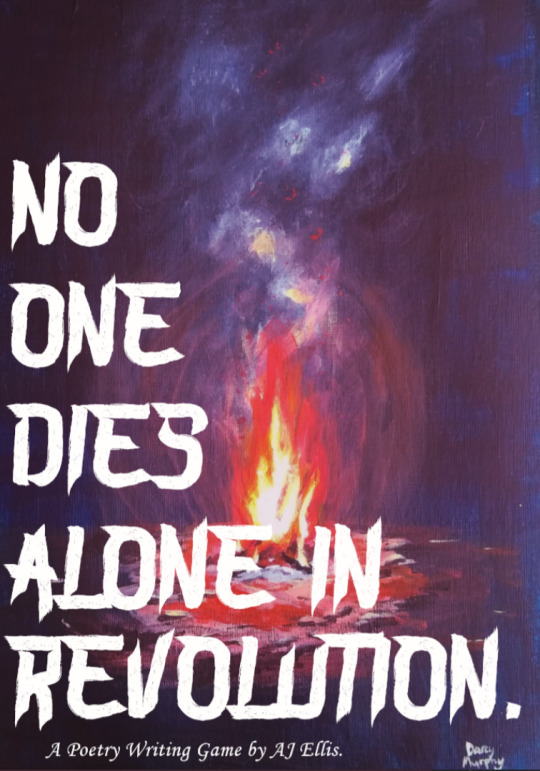
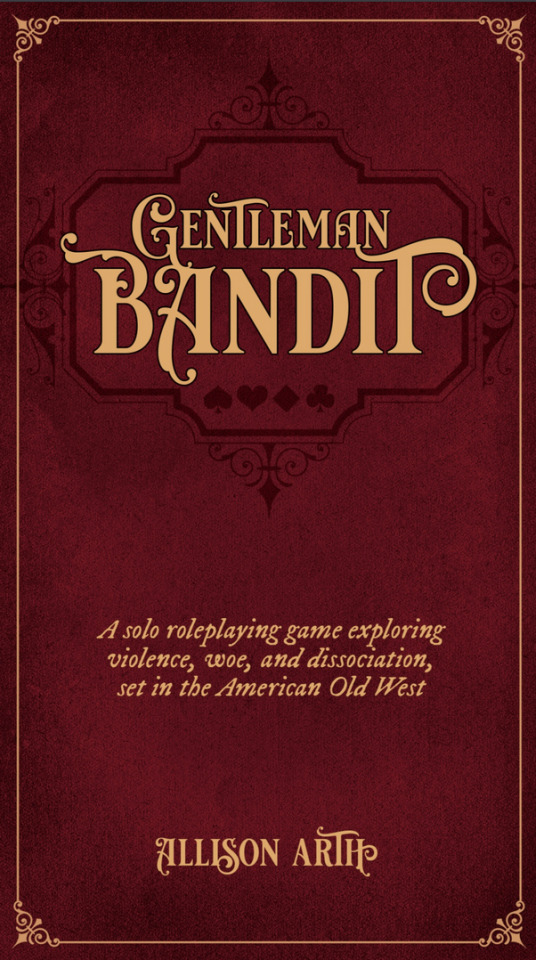
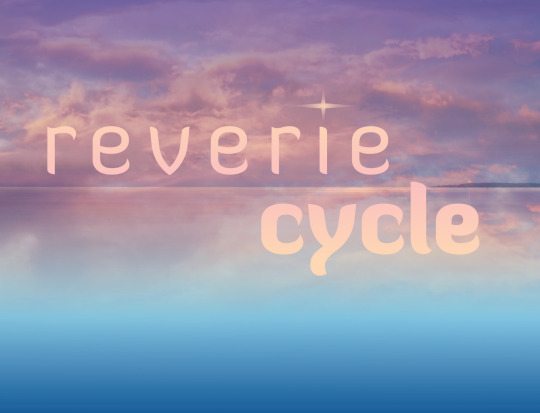

No One Dies Alone in Revolution, by Robin Rudd.
No One Dies Alone In Revolution is a single-player poetry-writing ttrpg in which you play as an empyromancer, interpreting flame and smoke to identify each new revolutionary soldier's patron saint, all past martyrs of the cause, and composing the prayers they will call out in battle.
This game uses a deck of cards, a dice, and an associated oracle to tell the story of the saints who died, and the prayers you will write in their honour. This is a creative game deeply steeped in ritual, and I think it makes the poetry-creation process feel quite natural. The lines of the prayers have rules depending on the cards you draw and the dice you roll, determining metrical feet, details that must be included, and the emotions the prayer is meant to evoke. If you want a game whose emotions bleed out onto the page, you want to try this game.
Gentleman Bandit, by allison arth.
They call you the Gentleman Bandit, because no one knows your name. They call you a monster, a villain, a dealer of death.
But they don’t know you.
Not your Heart, your Poet’s Heart filled with rage or filth or the expansiveness of True Love; not your Grieving Heart loosed over a chasm, making a sound like the sorrow of wolves as it plummets toward wet river stones, cracked bones left to bleach.
In this writing-focused RPG, you personify the eponymous Gentleman Bandit to write a 13-line poem you'll leave for the dead — and the ones who discover them. Card draws guide the content of each line; optional dice rolls add poetic devices to further shape the experience and ratchet the difficulty.
Using a deck of cards, you consult an oracle to determine the theme and topic of each line of your poem. There are optional requirements you can include in your poetry creation, such as writing in meter, applying a rhyme scheme, using double meanings, or using words from a diction list. Your final poem will also help you determine your next poem, as you can compare your hand to different poker hands.
This game also has a multiplayer option, if you are playing with multiple people, and two successors: Moonblind and The Swallowtail. There's also the Gentleman Pirate supplement, for fans of Our Flag Means Death.
Reverie Cycle, by Caro Acersion.
Reverie Cycle is about a group of isolated individuals, each shunning their own troubles and trials. They record their waking thoughts in their journals, reflecting on the world around them. But at night, their dreams — poetic, sensory, abstract — blur and blend with each other, creating a shifting, liminal state of overlapping worlds. The poetry of these dreams cascades and reappears, and eventually tumbles into their waking world as well…
Reverie Cycle is a play-by-poem roleplaying game — it uses poetry as a form of play, and play as a form of poetry. You don't need to consider yourself a poet to play, but by the end of the game, you will be.
This is a game about dreamers, asking for help in overcoming obstacles they are afraid to acknowledge when they are awake. It’s also an online game, with instructions for setting up the game over a private chatroom, such as Discord. The game also comes with safety emojis that you can use as you play, allowing you to react using a shorthand that signals to the players that something about the current play needs to be changed without breaking the through line of messages. Character creation involves answering a number of playbooks for your character, and assigning their unique touchstones that show up in their dreams. If you want a collaborative poetry experience, I recommend Reverie Cycle.
Care for Hecuba, by Hy Libre!
These games are born from caring about helpless tragic characters. Hecuba, Medea, Semele, Medusa-- these are monstrous, vulnerable women whose function in the story is to gravitate toward an inevitable death. By playing these games you are caring for them, because Euripides and his contemporaries are dead and somebody needs to.
These games borrow tools and expectations from poetry, but they're all "playable". You might interact with them by just reading, or by asking a friend to play them with you, or changing them to be "playable" in a way you like, or by saying "Hmm!" and moving on.
These games have the rules written as poetry, and their modes of play may occasionally also bleed into your daily life - eripedes’ favourite game tells you to ‘clean your fucking room’, for example. This is possibly also an example of a lyric game, because it feels like you are playing it as you read it. The games feel very intimate, so if you want an intensely personal experience, consider Care for Hecuba.
33 notes
·
View notes
Text
uhm. the beatitudes being in rdr is actually so important. arthur having blessed are those who hunger and thirst for righteousness; for they will be fulfilled, the fact that arthur devoted the end of his life to helping people. to making his wrongs right. arthur wanted to be good. he thirsted for it the same way he had thirsted for blood as a child. arthur had hungered for kindness the same way he had hungered for a hot meal as a street kid. and arthur is fulfilled. arthur has done what he needed to do. he fixed his wrongs the best he could. he strives for righteousness as his last want in the world. to be better. and he did
john having blessed are the peacemakers; for they shall be called children of god. john marston. the man who speaks like his father. the peacemaker. who helps those he meets. who strives to make balance. who helps a young revolutionary before her death. who helps the sinner and the saint. john marston who had lost everything and gains everything. john marston, the good man. not the beautiful one. but the good one. a man with a son and a wife who spares his father though he doesn’t deserve it. john marston who is alone. john marston who has learned to be better. who has lived long enough to learn what violence wrought. john marston who does to protect his family. john marston the peacemaker
and if dutch was to have one i think dutch would be blessed are those who are merciful; for they shall be shown mercy. dutch van der linde. poet and killer. dutch van der linde who took in the lowest of the lows. dutch van der linde who gave food to the robber and gave a blanket to the street kid. who showed mercy to the thug and the addict. dutch van der linde who told his eldest son that there are those who deserve to be robbed and those who do not. that it is their job to cradle the less fortunate and to bring justice to the rich man. dutch van der linde who became the very thing that disgusted them. dutch van der linde killer and rapist. dutch van der linde the snake
dutch van der linde the merciful. who is shown mercy because his son cannot manage to kill him. dutch van der linde who did not deserve such a kindness but was given it nonetheless
8 notes
·
View notes
Text

Assotto Saint, born Yves Francois Lubin in Les Cayes, Haiti in 1957. Assotto was an author, editor, dancer and musician in the band Xotika with his partner Jan Holmes.
Assotto was named after a ceremonial drum used in Haitian voodoo rituals -- tambou assoto. He took the name “Saint” after the Haitian revolutionary leader, Toussaint L’Ouverture.
Assotto edited The Road before us : 100 gay Black poets and encouraged Black gay men living with HIV to come out and disclose. Writing and publishing work became a means of living life and making sure the legacy of their artistic gay Black artistic community would not be forgotten.
You can find his work and other gay Black anthologies like, In the Life, on Internet Archive.org. Sign up for an account and you can check the books out for an hour or 14 days.
71 notes
·
View notes
Text
The universal and irrational belief that there is a "base element" in femaleness reflects "man's underlying fear and dread of women" to which Karen Horney referred, pointing out that it is remarkable that so little attention is paid to this phenomenon. More and more evidence of this fear, dread, and loathing is being unearthed by feminist scholars every day, revealing a universal misogynism which, in all major cultures in recorded patriarchal history, has permeated the thought of seemingly "rational" and civilized "great men"—"saints," philosphers, poets, doctors, scientists, statesmen, sociologists, revolutionaries, novelists. A quasi-infinite catalog could be compiled of quotes from the male leaders of "civilization" revealing this universal dread—expressed sometimes as loathing, sometimes as belittling ridicule, sometimes as patronizing contempt.
What has not received enough attention, however, is the silence about women's history. I do not refer primarily to the "Great Silence" concerning the acts of women under patriarchy, the failure to record or even to acknowledge the creative activity of great women and talented women. However, this is extremely significant and should be attended to. A typical case was Thomas More's brilliant daughter, Margaret. Men simply refused to believe that she was the author of her own writings. It was supposed that certainly she could not have done it without the help of a man. There were the women authors (e.g., George Eliot, George Sand, the Brontës) who could only get acceptance for their writings by disguising their sex under the pen name of a man. A reasonably talented woman today need only reflect honestly upon her own personal history in order to understand how the dynamics of wiping women out of history operate. Women who give cogent arguments concerning the oppression of women before male audiences repeatedly hear reports that "they were not able to defend their position." Words such as "flip," "slick," or "polemic" are used to describe carefully researched feminist writings. I point to this phenomenon of the wiping out of women's contributions within the context of patriarchal history, because it means that we must consciously develop a new sense of pride and confidence, with full knowledge of these mechanisms and of the fact that we cannot believe the history books that tell us implicitly that women are nothing. I point to it also because we have to overcome the hyper-cautiousness (not to be confused with striving for accuracy) that keeps us from strongly afirming our own history and thereby re-creating history.
I refer to the silence about women's historical existence since the dawn of patriarchy also because this opens the way to overcoming another "Great Silence," that is, concerning the increasing indications that there was a universally matriarchal world which prevailed before the descent into hierarchical dominion by males. Having experienced the obliterating process in our own histories and having come to recognize its dynamics within patriarchal history (which is pseudo-history to the degree that it has failed to acknowledge women), we have a basis for suspecting that the same dynamics operate to belittle and wipe out arguments for and evidence of the matriarchal period. Erich Fromm wrote:
The violence of the antagonism against the theory of matriarchy arouses the suspicion that it is . . . based on an emotional prejudice against an assumption so foreign to the thinking and feeling of our patriarchal culture.
While of itself such violence of antagonism obviously does not prove that the position so despised is correct, the very force of the attacks should arouse suspicions about the source of the opposition. It is important not to become super-cautious and hesitant in looking at the evidence offered for ancient matriarchy. It is essential to be aware that we have been conditioned to fear proposing any theory that supports feminism.
The writings supporting the matriarchal theory produced many decades ago are receiving new attention. These early contributions included the works of Bachofen (Das Mutterrecht, 1861), Louis Henry Morgan (Ancient Society, 1877), Robert Briffault (The Mothers, 1927), and Jane Harrison (Prolegomena to the Study of Greek Religion, 1903). They point not only to the existence of universal matriarchy, but also to evidence that it was basically a very different kind of society from patriarchal culture, being egalitarian rather than hierarchical and authoritarian. Bachofen claimed that matriarchal culture recognized but one purpose in life: human felicity. The scholarly proponents of the matriarchal theory maintain that this kind of culture was not bent on the conquest of nature or of other human beings. In brief: It was not patriarchy spelled with an "m." This is an important point, since many who are antagonistic to women's liberation ignorantly and unimaginatively insist that the result will be the same kind of society with women "on top." "On top" thinking, imagining, and acting is essentially patriarchal.
Elizabeth Gould Davis points out that recent archaeological discoveries support these early theories to a remarkable extent. She shows that archaeologists have tended to write of their discoveries that women were predominant in each of their places of research as if this must be a unique case. She maintains that "all together these archaeological finds prove that feminine preeminence was a universal, and not a localized, phenomenon." Davis further comments upon detailed reports that have been made on three prehistoric towns in Anatolia: Mersin, Hacilar, and Catal Huyuk. She concludes that "in all of them the message is clear and unequivocal: ancient society was gynocratic and its deity was feminine. " There is an accumulation of evidence, then, in support of Bachofen's theory of our gynocentric origins, and for the primary worship of a female deity.
-Mary Daly, Beyond God the Father: Toward a Philosophy of Women’s Liberation
16 notes
·
View notes
Photo

https://archive.org/details/rantsincendiarytractsvoicesofdesperateillumination1558present/mode/2up
Contents:
Prelude by Adam Parfrey
Foreword by Bob Black
1. The Monstrous Regiment of Women by John Knox
2. The Pleasure-loving Modern Woman by William Prynne
3. A Fiery Flying Roll by Abiezer Coppe
4. Pirate Rant by Captain Bellamy
5. A Fair Dream and a Rude Awakening by Jean Paul Marat
6. Philosophy in the Bedroom by Marquis De Sade
7. King Steam by Anonymous Luddite
8. Hurrah! Ou La Revolution Par Les Cosaques by Courderoy
9. A Sentimental Bankruptcy by Charles Fourier
10. The Ego and Its Own by Max Stirner
11. Murder by Karl Heinzen
12. No Treason by Lysander Spooner
13. The Revolutionary's Catechism by Sergei Necheyev
14. Dynamite! By T. Lizius
15. Speech of the Condemned by Louis Lingg
16. Speech to Missionaries by Red Jacket, Seneca Leader
17. An Exchange by Judge Roy Bean & Judged Beaner
18. Voters Strike! By Octave Mirbeau
19. Might Is Right by Ragnar Redbeard
20. Degeneration by Max Nordau
21. Manifesto of Lust by Valentine de Saint-Point
22. Anarcho-Futurist Manifesto by A. L. & V. L. Gordin
23. Iconoclasts, Forward! by Renzo Novatore
24. Literature and the Rest by Philippe Soupault
25. Anathema of Zos by Austin Osman Spare
26. General Security: The Liquidation of Opium by Antonin Artaud
27. I Wish You All Had One Neck by Carl Panzram
28. The Eternal Youth by Ralph Chubb
29. Bagatelles Pour un Massacre by Louis-Ferdinand Celine
30. Darkness by Ezra Pound
31. The Poet's Dishonor by Benjamin Peret
32. Listen, Little Man! by Wilhelm Reich
33. Formulary for a New Urbanism by Ivan Chtcheglov
34. Concerning New Year 1963 by Ayatollah Ruhollah Khomeini
35. Ball of the Freaks by Anonymous
36. There Is a Great Deal to Be Silent About by Emmett Grogan
37. SCUM Manifesto by Valerie Solanas
38. Plea for Courage by Mel Lyman
39. P.O.W. Statement by Timothy Leary
40. On Fear by the Process Church
41. Occupy the Brain by Carsten Regild & Rolf Borjlind
42. Never Again! by Rabbi Meir Kahana
43. Situationist Liberation Front by Anonymous
44. The Invisibles by Thibaut D'Amiens
45. Misanthropia by Anton Szandor La Vey
46. The Anthropolitical Motivations by Stanislav Szukalski
47. The Correct Line by Bob Black
48. Investment in Survival by Kurt Saxon
49. The Roots of Modern Terror by Gerry Reith
50. Meese Commission Report on Pornography by Park Elliott Dietz, M.D.
51. Reward of the Tender Flesh by Ed Lawrence
52. The Nine Secrets of Mind Poisoning at a Distance by Kerry Wendell Thornley
53. L'Revolucion Pourneant by Pascal Uni
54. Sammy Prole Gets Tough by John Crawford
55. Population and Aids by Earth First!
56. Out of the Mouth of Venom: Creation by Kathy Acker
57. Intellectual S & M Is the Fascism of the 80's by Hakim Bey
77 notes
·
View notes
Text
On a personal note, as many know (and as I’ve often spoken and written of), I owe a great deal to Assotto. Maybe we all do. As I’ve stated, I was there in the church that day in 1992 at the funeral of Donald Woods. I was one of many attendees from Donald’s activist family. I was one of many who read the program and saw the glaring omission of Donald’s poetry and activist work. The program also stated Donald had died of heart failure. I was one of many who witnessed Assotto speed down the aisle and take over the pulpit mid-service, declaring, “Donald Woods did not die of heart failure; he died of AIDS and he was a proud Black gay man. If you agree with me, stand up.” Half the church stood. Half didn’t. I stood up, as did Donald’s sister, Yvonne. I count that moment as one of a few where my path as an artist was revealed to me.
The second most defining moment in my life happened in 1990, when I attended the “I Am Your Sister Conference” in Boston, a celebration of the work of Audre Lorde. In her first appearance on stage, the self-described warrior poet Audre emerged, spread open the arms of her dashiki, and told a crowded room of followers of her battle with cancer. She said, “I began on this journey as a coward.” Witnessing the courage of Assotto and Audre shaped me as a poet, a person, teacher, performer. I want everyone I encounter to experience that sense of exhilaration and freedom when the truth is told bare-naked, and to feel the power of standing up for their lives at whatever cost.
Recently, I helped lead a Last Address Tribute Walk in Harlem with several organizations and individuals (the walk was originally developed by Alex Fialho). We went to Harlem at my insistence. In tribute, we went to the addresses of Black gay men who died of AIDS. We went to the address of Bert Michael Hunter, who was part of the Black gay writers group Other Countries, of which Assotto was also a charter member. Donald Woods, Colin Robinson, and Essex Hemphill, among others, were members as well. At Hunter’s address, the filmmaker and writer Robert E. Penn and the writer, archivist, and activist Sur Rodney (Sur) spoke of Bert and belonging to Other Countries. Sur recalled a story of running into Assotto in the late eighties, when Assotto urged him to join Other Countries. They said, “Sur, don’t abandon your brothers.” I think that statement encapsulates Assotto and what their convictions were.
The title of this collection, Sacred Spells, very much refers to Assotto’s powerful Haitian ancestry. I was thrilled to learn here that the person born Yves Lubin renamed themself “Assotto,” after a drum used in voodoo, and “Saint” after the great Haitian revolutionary fighter Toussaint Louverture. “Saint” also embodies their queerness, claiming self-ownership as a poet and magician whose language conjures, casts spells, and offers protection and healing. No name could be more fitting.
I know in certain Latinx ceremonies they call the names of the dead and fallen warriors, and the crowd responds “presente,” to mean present.
Assotto’s work speaks to us throughout time.
I imagine in the Black Baptist tradition, where I’m from, Assotto’s name is called out and with all of my heart and conviction I yell back “PRESENT” to say, he is here, always among us.
————
Still An introduction to our Assotto Saint folio by Pamela Sneed
8 notes
·
View notes
Text
189. Salt to the Sea, by Ruta Sepetys
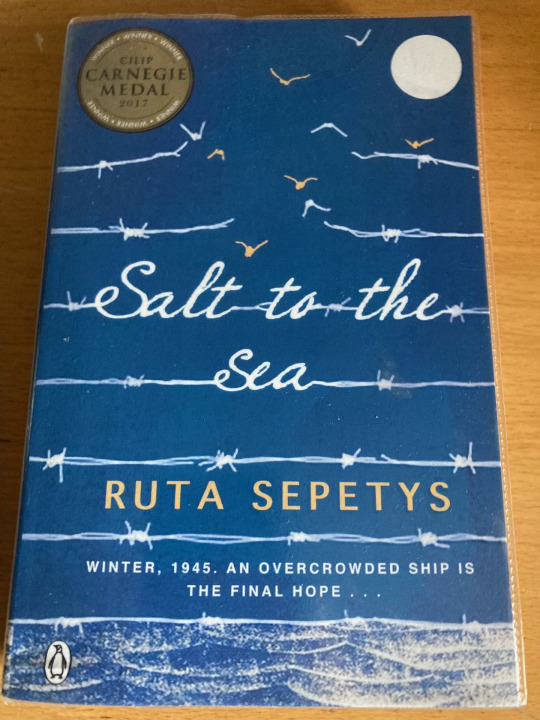
Owned: No, library
Page count: 378
My summary: Emilia. Florian. Joana. Alfred. Four young people from different lands, all thrown together in the chaos of the Second World War. East Prussia is being evacuated. Desperate people are fleeing the country to the ships promised to take them far away. But disaster is lurking on the horizon. When it's every person for themselves, who will live and who will die?
My rating: 3/5
My commentary:
I thought I'd never read this book before. And yet, when I got about 50 pages in, it started to seem familiar - strangely familiar. I've read a couple of Ruta Sepetys' books before, namely I Must Betray You and Out of the Easy, which I haven't covered here. The former I didn't like, the latter I actually enjoyed. This is one of her earlier works, though not the earliest - it's apparently something of a sequel to a book called Between Shades of Gray, which I'm 90% sure that I haven't read. To its credit, I don't think not having read the earlier book hampered my engagement with this one. But less charitably…I wasn't all too keen on this one, it has to be said. While it wasn't bad in and of itself, I found it to be sensationalist and simplistic, and overall didn't quite live up to my expectations.
This story is about the Wilhelm Gustoff, a ship that was meant to be evacuating refugees from East Prussia during World War Two, but was sunk by Russian torpedoes, killing roughly nine thousand of the ten thousand people aboard. The story follows four teenagers - pregnant Polish girl Emilia, Lithuanian nurse Joana, Prussian boy Florian, and Nazi recruit Alfred. More on them later. The story follows the refugees as they travel to the ship, and the trials they face along the way, then ends with the sinking of the Wilhelm Gustoff. There's a lot of promise here - the chaos towards the end of the Second World War, the point of view of civilians from Eastern Europe which isn't so often told, an eye on a historical tragedy which the average reader might not have heard about.
But everything here was just a little bit too simplistic. Alfred's parts of the story kept hammering in how cowardly and weaselly and pathetic he is, Emilia's chapters made her seem like a saint, Florian's angst and brooding over how he's totally gonna be killed if he gets found out really doesn't fit the crime he's committing, and Joana's past is ill-defined and her story focuses more on her relationship with Florian. It's obvious that Florian and Joana are going to be the survivors. Emilia is too innocent, and Alfred is too bad. Even factoring in the extended cast - blind Ingrid is the first to go, then rude giantess Eva, then the sympathetic Shoe Poet. The child survives, because he's an innocent in a much purer way than Emilia. It's basic storytelling, and once that who's-going-to-make-it tension is gone, there really isn't that much left in the narrative to write home about.
And the narrative style is just too overblown for me. Every chapter is screaming look I've got secrets am I not the most mysterious thing to you, to the point where it just gets annoying. And the secrets themselves aren't all that shocking. It doesn't take a genius to guess that Emilia is a fantasist and the child she's carrying was concieved after an assault, or that Alfred's apparent sweetheart Hannelore isn't actually his sweetheart, and that he turned her in to the Nazis. Florian's whole thing, that he's carrying a small part of the Amber Room in defiance of Nazi Gauleiter Erich Koch, isn't all that compelling either. I was assuming he was involved in some anti-Nazi action - while this is technically anti-Nazi, it's hardly lifesaving revolutionary work. Joana, meanwhile, the audience is expected to be familiar with, which means I couldn't get much of a read on her. It's so disappointing, this could have been really good, but I was just taken out of it at every turn.
Next, three brave girls escape captivity in Australia.
4 notes
·
View notes
Text
PORCILE - (Pier Paolo Pasolini, 1969)

I (re)watched yesterday this harsh, uncomfortable, apparently cryptic semi-unknown, if great, philosophic movie and, after the end, I confirmed and heightened the judgment I stated many years ago: "Porcile" is the most sincere (and consequently: the most outrageous) among all the movies (better: artworks) of the great Italian literate and filmmaker."Porcile" is a poor film: it was shot in a month with a ridiculous budget and has been considered by decades a Pasolini's minor movie despite, at a closer look, it appears as one of his richest to the extent that it is capable to dissect at its limits the apparent contradiction of a modern thought (his) that, indeed, cannot actually exist without continuously confronting with an "archaic heritage" that saves that sense of "sacred" (the infinite, the entirety, the inner human nature) that is crucial and essential to the soul of a poet/phylosophe.One initial stone inscription makes clear the theme: "After well questioned our conscience, we have stated to devour you because of your disobedience». that is: we (the public opinion); you( Pasolini himself).The movie is made of two separate (but intersected) narrations; the first story, set in France in the XVIII century, tells of a young man (Jean-Pierre Léaud) who, neglecting the love offering of his promised wife (Anne Wiazemsky), refuses any social behavior and has shameful sexual intercourses with pigs... ; the second story takes place in the Middle Age in a wild, desolate, vulcanic land (actually the Mount Etna) and tells of the chief of a bunch of murderous outlaws (Pierre Clémenti) who kills his father and eats his flesh. Both these transgressive "counter-heroes" will end their life eaten by animals....The meaning of "Porcile" all relies in trasnsgression; it is committed to demonstrate the statement that "the saints, like the different, anticonformist and disobedient people, don't make the history but suffer it" (PPP), they act by and for themselves and, by their diversity, they are doomed to die as victims of their anti-conformism, of their never be lined up with the masses.Pasolini's merit stands in his will to share with his readers and his audience this suffered message, the only irrepressible way that could allow him to bear the weight of the many crusades brought against him without retreating on the easy aristocratic position of "artist disengaged from the world" (and this is a reason for which we should never cease to be grateful to him).Pasolini says; "... the film bears also a political meaning; its esplicit object is Germany (its historical situation) but the target is the ambiguous relation between the new and the old capitalism; Germany has only been chosen as it represents a borderline case. The implicit poliitical content of the movie is a desperate distrust in all historical societies, consequently the genre of it (if there is one) is: apocalyptic anarchy. Being "the sense" of my movie so atrocious and terrible I only could treat it: a) by a quasi-contemplative detachment; b) with humor».The meaning is clear: after the horrors of the recent history (Hitler's Germany) we have the social desolations of the new capitalism. Julian's starvation (Léaud) is the result of this dramatic passage and his sad end (to be eaten by the pigs) blatantly tells of the impossibility of adapting to a reality in which "everything" becomes conformism (to be a revolutionary included, how the last sequence demonstrates).Similarly touching is the end of the "cannibal" Clémenti who, weaponed by his "apocalyptic anarchy" (and the resulting general contestation on an esistential plan), kicks, bites, beats whoever would submit him to a power that unavoidably would subjugate him. He enacts a man (or an idea), that is without pity just like those who would reduce him to a state of slavery (that he could never accept). His choice is so extreme that he prefers to move freely on the cold slopes of the Etna eating butterflies, snakes and human flesh, pushed from the instinctive pulse to live in contact with a sacred nature that has nothing of "moral".A unique movie, a deep reflection on the various ways to consider the human condition.




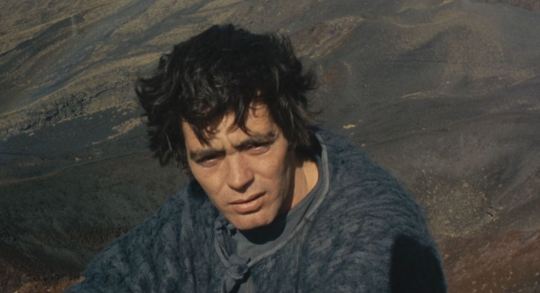





R.M.
8 notes
·
View notes
Note
20. In what ways does your character compare themselves to others? Do they do this for the sake of self-validation, or self-criticism?
Byron: He's very quick to point out how people contribute to harmful patterns, and he certainly does that to validate himself. He's not very prone to self-criticism, but he does admire other people or figures such as poets, philosophers and revolutionaries. At his most frustrated, he looks to them and feels like he isn't doing enough to change the world.
Jacob: Self-validation and self-criticism are what Jacob does in almost equal measure. For most of his life he was (relatively) free of troubles, and would often attribute that to his quality moral standing. If others were just less lazy, sinful, drunk, disorganized, ect, then they could be at 'peace' like him. However, he also compares himself to other clergy and saints, and constantly feels inadequacy. Others make it seem so effortless to maintain purity of character, and he feels like he struggles all of the time. Now that he's a Ginterghast, he's trying to compare himself to others, and to Charlotte to try and figure out what his future could look like.
3 notes
·
View notes
Text
“You have a picture of life within you, a faith, a challenge, and you were ready for deeds and sufferings and sacrifices, and then you became aware by degrees that the world asked no deeds and no sacrifices of you whatever, and that life is no poem of heroism with heroic parts to play and so on, but a comfortable room where people are quite content with eating and drinking, coffee and knitting, cards and wireless. And whoever wants more and has got it in him—the heroic and the beautiful, and the reverence for the great poets or for the saints—is a fool and a Don Quixote. Good.
And it has been just the same for me, my friend. I was a gifted girl. I was meant to live up to a high standard, to expect much of myself and do great things. I could have played a great part. I could have been the wife of a king, the beloved of a revolutionary, the sister of a genius, the mother of a martyr. And life has allowed me just this, to be a courtesan of fairly good taste, and even that has been hard enough. That is how things have gone with me.
For a while I was inconsolable and for a long time I put the blame on myself. Life, thought I, must in the end be in the right, and if life scorned my beautiful dreams, so I argued, it was my dreams that were stupid and wrong headed. But that did not help me at all. And as I had good eyes and ears and was a little inquisitive too, I took a good look at this so-called life and at my neighbors and acquaintances, fifty or so of them and their destinies, and then I saw you. And I knew that my dreams had been right a thousand times over, just as yours had been. It was life and reality that were wrong […]
You are right, Steppenwolf, right a thousand times over, and yet you must go to the wall. You are much too exacting and hungry for this simple, easygoing and easily contented world of today. You have a dimension too many. Whoever wants to live and enjoy his life today must not be like you and me. Whoever wants music instead of noise, joy instead of pleasure, soul instead of gold, creative work instead of business, passion instead of foolery, finds no home in this trivial world of ours—”
— Steppenwolf
2 notes
·
View notes
Text
Birthdays 1.23
Beer Birthdays
John Carling (1828)
Leopold Schmidt (1846)
Emily Banks, Miss Rheingold 1960 (1933)
Charlie Papazian (1949)
Brian Reccow (1970)
Five Favorite Birthdays
Gary Burton; jazz musician (1943)
Jerry Kramer; Green Bay Packers G (1936)
Edouard Manet; artist (1831)
Walter M. Miller Jr.; science fiction writer (1923)
Django Reinhardt; jazz guitarist (1910)
Famous Birthdays
Ray Abrams; jazz saxophonist (1920)
John Luther Adams; composer (1953)
Richard Dean Anderson; actor (1950)
Lou Antonio; actor & director (1934)
David Arnold; English composer (1962)
Jean-Michel Atlan; Algerian-French painter (1913)
Georg Baselitz; German painter & sculptor (1938)
Frances Bay; Canadian-American actress (1919)
Rutland Boughton; English composer (1878)
Jonatha Brooke; singer-songwriter & guitarist (1964)
John Browning; weapons designer (1855)
Muzio Clementi; Italian pianist, composer, & conductor (1752)
Camilla Collett; writer (1813)
Otto Diels; German chemist (1876)
Abraham Diepraam; Dutch painter (1622)
Dan Duryea; actor (1907)
Sergei Eisenstein; film director (1898)
Gertrude Elion; pharmacologist (1918)
Gil Gerard; actor (1943)
John Hancock; politician, revolutionary (1737)
Mariska Hargitay; actress (1964)
Rutger Hauer; actor (1944)
Joseph Hewes; signer of the Declaration of Independence (1730)
Ernie Kovacs; comedian (1919)
Doutzen Kroes; Dutch model & actress (1985)
W. Arthur Lewis; Saint Lucian-Barbadian economist (1915)
Boris McGiver; actor (1962)
Jeanne Moreau; French actress (1928)
Walter Frederick Morrison; businessman, invented Frisbees (1920)
Alois Negrelli; Tyrolean engineer & railroad pioneer (1799)
Gail O'Grady; actress (1963)
Anita Pointer; singer-songwriter (1948)
Marty Paich; pianist, arranger (1925)
John Polanyi; German-Canadian chemist (1929)
Claire Rankin; Canadian actress (1971)
Tom Reamy; author (1935)
Chita Rivera; actress, singer, & dancer (1933)
Randolph Scott; actor (1898)
Ieva Simonaitytė; Lithuanian author (1897)
Richard T. Slone; English painter (1974)
Lisa Snowdon; model (1972)
Stendhal; French writer (1783)
Potter Stewart; supreme court justice (1915)
Tiffani-Amber Thiessen; actress (1974)
Nikolay Umov, Russian physicist and mathematician (1864)
Derek Walcott; Saint Lucian poet & playwright (1930)
Fred Williams; Australian painter (1927)
Hideki Yukawa; Japanese physicist (1907)
Robin Zander; rock musician (1953)
0 notes
Text
On this day in Wikipedia: Wednesday, 13th September
Welcome, 你好, Välkommen, Dzień dobry 🤗
What does @Wikipedia say about 13th September through the years 🏛️📜🗓️?

13th September 2022 🗓️ : Death - Jean-Luc Godard
Jean-Luc Godard, French-Swiss film director, screenwriter, and film critic (b. 1930)
"Jean-Luc Godard (UK: GOD-ar, US: goh-DAR; French: [ʒɑ̃ lyk ɡɔdaʁ]; 3 December 1930 – 13 September 2022) was a Franco-Swiss film director, screenwriter, and film critic. He rose to prominence as a pioneer of the French New Wave film movement of the 1960s, alongside such filmmakers as François..."
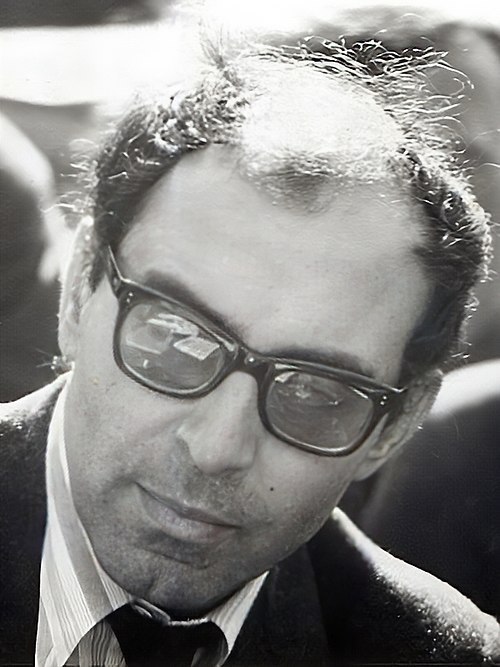
Image licensed under CC BY 2.0? by Gary Stevens
13th September 2018 🗓️ : Event - Merrimack Valley gas explosions
The Merrimack Valley gas explosions: One person is killed, 25 are injured, and 40 homes are destroyed when excessive natural gas pressure caused fires and explosions.
"On September 13, 2018, excessive pressure in natural gas lines owned by Columbia Gas of Massachusetts caused a series of explosions and fires to occur in as many as 40 homes, with over 80 individual fires, in the towns of Lawrence, Andover, and North Andover, all within the Merrimack Valley, in..."

Image by National Transportation Safety Board
13th September 2013 🗓️ : Event - Taliban
Taliban insurgents attack the United States consulate in Herat, Afghanistan, with two members of the Afghan National Police reported dead and about 20 civilians injured.
"The Taliban (; Pashto: طالبان, romanized: ṭālibān, lit. 'students'), which also refers to itself by its state name, the Islamic Emirate of Afghanistan, is a Deobandi Islamic fundamentalist and Pashtun nationalist militant political movement in Afghanistan. It ruled approximately three-quarters of..."

Image by
Original:
Taliban
Vector:
Lexicon
13th September 1973 🗓️ : Death - Sajjad Zaheer
Sajjad Zaheer, Indian poet and philosopher (b. 1905)
"Syed Sajjad Zaheer (Urdu: سید سجاد ظہیر) (5 November 1905 – 13 September 1973) was an Indian Urdu writer, Marxist ideologue and radical revolutionary who worked in both India and Pakistan. In the pre-independence era, he was a member of the Communist Party of India and the Progressive Writers'..."
13th September 1923 🗓️ : Event - Miguel Primo de Rivera
Following a military coup in Spain, Miguel Primo de Rivera takes over, setting up a dictatorship.
"Miguel Primo de Rivera y Orbaneja, 2nd Marquis of Estella, GE (8 January 1870 – 16 March 1930), was a Spanish dictator and military officer who ruled as prime minister of Spain from 1923 to 1930 during the last years of the Bourbon Restoration. He was born into a landowning family of Andalusian..."
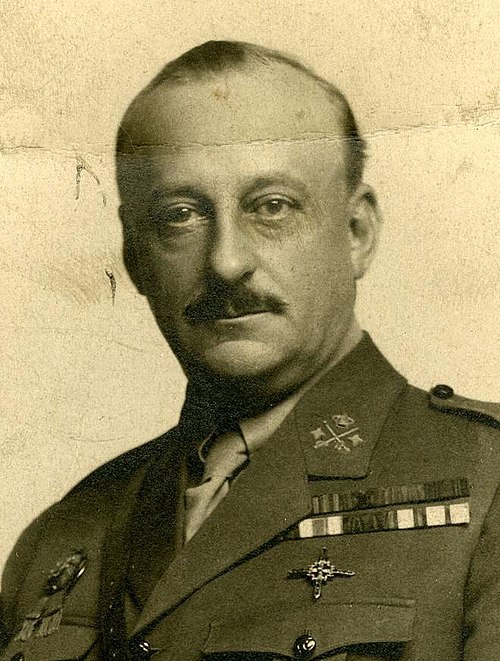
Image licensed under CC0? by Kaulak
13th September 1819 🗓️ : Birth - Clara Schumann
Clara Schumann, German pianist and composer (d. 1896)
"Clara Josephine Schumann ([ˈklaːʁa ˈʃuːman]; née Wieck; 13 September 1819 – 20 May 1896) was a German pianist, composer, and piano teacher. Regarded as one of the most distinguished pianists of the Romantic era, she exerted her influence over the course of a 61-year concert career, changing the..."
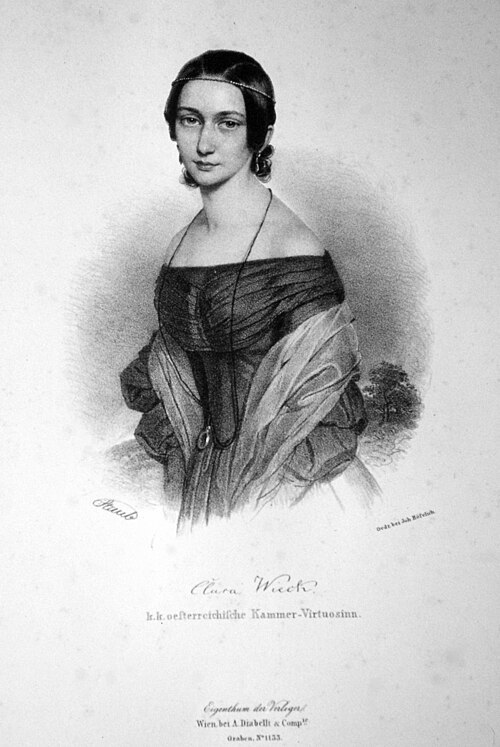
Image by Andreas Staub
13th September 🗓️ : Holiday - Christian feast day: Ame
"Saint Amatus, (c.560-c.627)) also called Amatus of Grenoble or Saint Ame or Aimee, was a Colombanian monk and hermit. Together with St. Romaric, he founded Remiremont Abbey. ..."
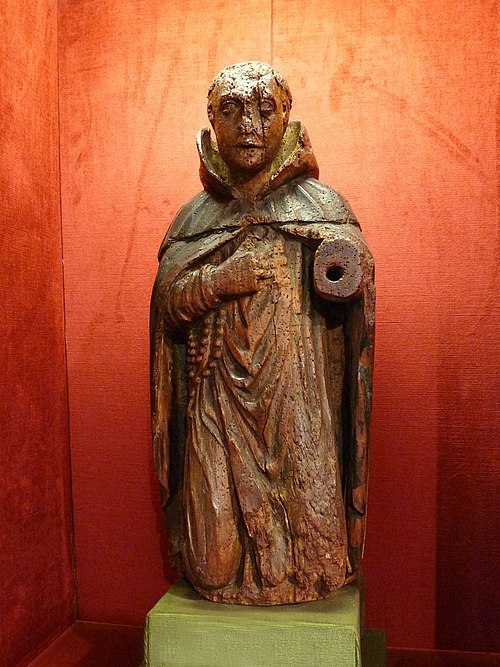
Image licensed under CC BY-SA 3.0? by Ji-Elle
0 notes
Text
Saint Sinéad
Shuhada, May you fly free.
“Children say that people are hung sometimes for speaking the truth.” Joan of Arc, 1400s
“Put your fucking seatbelts on ’cause I haven’t finished yet.” Sinéad O’Connor, SPIN 1992

Singer. Banshee. Advocate. Priest. Theologian. Mother. Bold. Brave. Muslim. Life-long nonconformist. Feminist. Human.
I’ll never forget the SNL episode when she tore the pope’s photo in half after singing Bob Marley’s War. No one did that. No one was brave enough to speak truth like that.
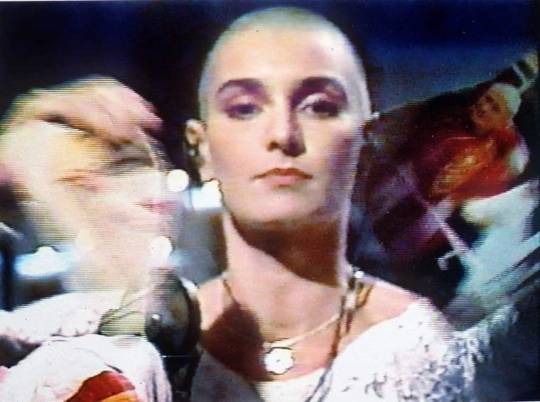
I bought combat boots that year and later wore them out walking all over town during the national changes in 1992. Inspired to be a social sciences major and music minor because of the spirit of the revolutionaries, from the 1800’s and 1900’s—youth, women, men, poets, writers, the truth tellers, the artists and musicians who spoke truth- real truth- against hypocrisy, against insanity, against a system that would kill them or exile them for having the audacity to speak truth. To be a free thinker.
I thought the most incredible destiny at the time was creating art because of and despite the insanity of the lies, the struggle of the human condition. And the journey of the one, the artist inside a collective sea, despite and because of persecution or being gaslit, silenced and all manner of atrocity, yet living on through and beyond. Their art, an eternal message of possibility, freedom and hope.
I’ve been reading a slew of articles that paint Sinéad’s portrait and highlight the spectrum of her human journey through her music, political activism, mental illness, motherhood and spiritual truth finding. She journeyed deep and wide, high and low. She was that destiny, not ego in the harmful sense, Artist. She was not going to change or be what the industry wanted her to be. Her music, her songs lifted up so many of us— the voiceless, the broken, the afraid, the confused, the troubled. She gave feelings and words to millions. She was an angel and a waif, a punk and a rebel, a truth teller and her own wild wolf. She howled and gave us permission to feed and feel the moon.
She was unapologetic. She did not care that what she said or did for the sake of truth and freedom, impacted the socially constructed ideas of what fame or fortune in the music industry are supposed to looks like. That they impacted her musical ‘career’ as the industry explains it, mattered not. Sinéad was a woman of her own making.
“I didn’t have time to think about [becoming famous] before it happened,” she says. “I was singing in clubs and pubs, pubs and clubs… I was just singing for the sake of singing, ‘cause I had shit to get off my chest. I feel like that’s the only reason really [for anyone] to make an album is because they’ll go so fucking crazy if they don’t. If you’re making an album for any other reason you shouldn’t be fucking making it.”

I played her albums on repeat. Some songs and albums more than others, through my youth.
“When I sing, it’s the most solitary state: just me, and the microphone, and the holy spirit. It’s not about notes or scales, it’s all about emotion.”
I cut my hair short. Swore off my insecure, boy-crazy teenage low self esteem superficiality. There was Pre-Revolutionary Angie and then Post-Revolutionary Angie. Like Baba Yaga said, to know too much is to grow too old too soon. I saw too much about the human condition, the cost of freedom and it’s opposite on the human psyche, felt and saw one world dying and another world rising— a world that was being made a golden child— Capitalism! And all I could see and smell was lies and hypocrisy. Yes some of the old needed to die, but some of the soul of the old was being raped by the dollar and that seemed insane to me. I didn’t know how to put in in words or digest it. It was a bone to choke on.
I was only a kid. I struggled mentally with anxiety and depression. An awakening of sorts. But no bearings back home to make sense of it. Sinéad’s music and Russian literature, poetry and music of the revolutions of old helped tremendously during that time. Dr. Zhivago. The Master and Marharita. Anna Akhmatova. Learning about the artist/writer and the struggle for freedom amidst censorship and death. Life, the world didn’t make sense. All the things that didn’t make sense about being a girl becoming a woman, American capitalism, not speaking truth, following social norms, political bullshit, pretense, Beverly Hills 90210 and Melrose place… I rejected all of it. Mostly quietly, silently. While imploding inwards on myself because I didn’t understand transition or how to wake up fully boldly inside of it. Mental breakdown was the label that made sense. Yet it was more, it was that so much of the system was insane. So much of the conditions the inheritance the American myth the gender this and that —-it was insane.
Sinead was like a beacon of sanity amidst all that nonsense. They said she struggled with mental illness too, but she didn’t shut up. Did she have mental illness or did she grow up into a world that was completely entirely a nut job. Sometimes it’s a both and but sometimes the mental illness is the result of being fed insanity.
She didn’t stop saying through music what needed to be said. It was felt through my pores even if I wasn’t fully listening to the words. I freakin loved her. I cried to her songs. They resurrected me.
“Whatever it may bring
I will live by my own policies
I will sleep with a clear conscience
I will sleep in peace
Maybe it sounds mean
But I really don't think so
You asked for the truth and I told you
Through their own words
They will be exposed
They've got a severe case of
The emperor's new clothes
The emperor's new clothes
The emperor's new clothes
The emperor's new clothes”
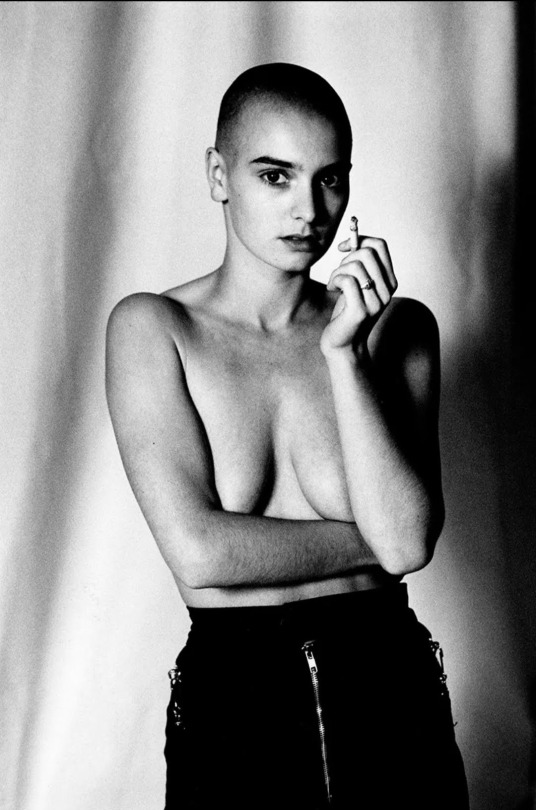
Sinéad had a hard life. A difficult insane mother. A fucked up religion with its Massoleum of ghosts and secrets. She fought hard against child abuse, sexual abuse, hypocritical lies in the name of god and more. She became a priest. And she sang her own songs in her own way. In one interview decades ago, she said she thought Americans were wussies and needed to be more brave and speak out more against the lies and injustices. She was changed by motherhood. She lived through the painful suicide of one of her beloved children. That changed her. Some stories break you harder. And some stories don’t have a medicine that makes the pain go away.

She converted to Islam and changed her name several times. She took on the Muslim name Shuhada' Davitt – later changing it to Shuhada Sadaqat – but continued to use the name Sinéad O'Connor professionally. Shuhada means martyr.
From what I understand, Islam was the culmination of her spiritual journey as a theologian. She felt home inside of it. She found contentment.
“I never made sense to anyone, even myself, unless I was singing. But I hope this book makes sense. If not, maybe try singing it and see if that helps.”
I haven’t yet read her memoir. I somehow forgot about her in my 30’s and as I lost touch, I didn’t pay to much attention to her music. Her death wakes me up to her story, to my story, to our story of waking up inside a machine, waking up to truth, to life/death/life. May she fly free. May her passing be a wave of wakefulness over our heads, reminding us to be more bold. More truthful. More real.
And lastly, Shuhada… May the words of the great truth teller Pasternak carry you into the arms of Allah and beyond.

“And now listen carefully. You in others-this is your soul. This is what you are. This is what your consciousness has breathed and lived on and enjoyed throughout your life-your soul, your immortality, your life in others. And what now? You have always been in others and you will remain in others. And what does it matter to you if later on that is called your memory? This will be you-the you that enters the future and becomes a part of it.”
Boris Pasternak, Doctor Zhivago

0 notes